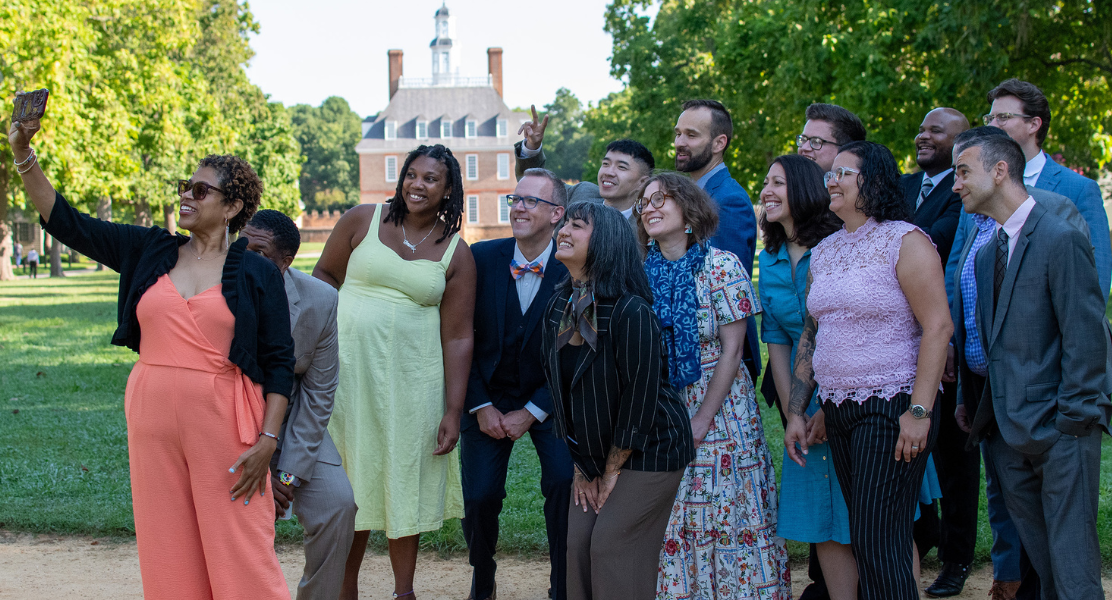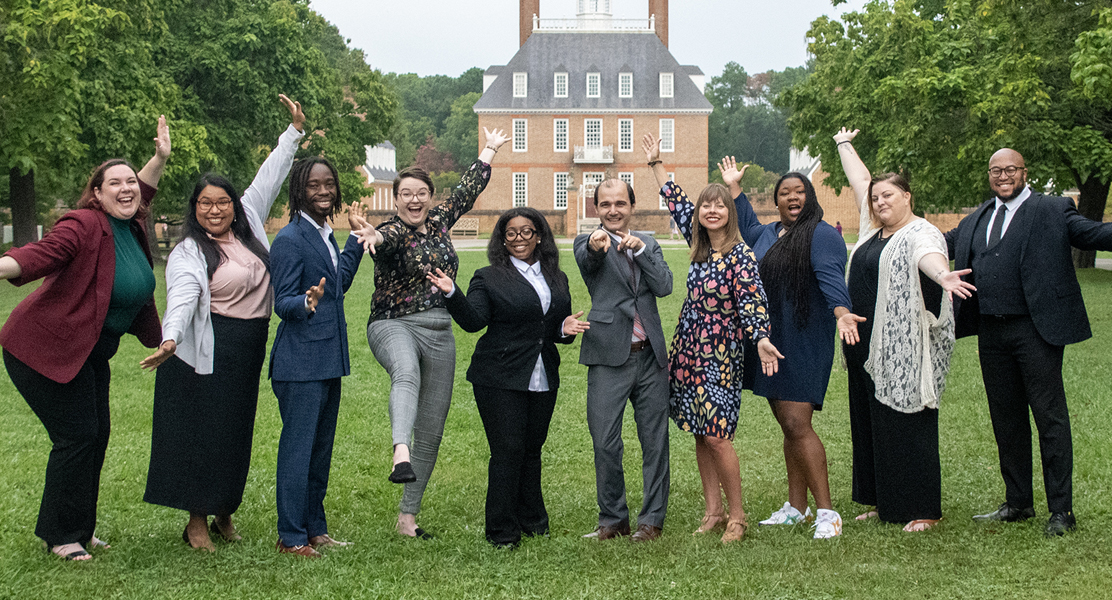THE BJC FELLOWS
2025 BJC Fellows
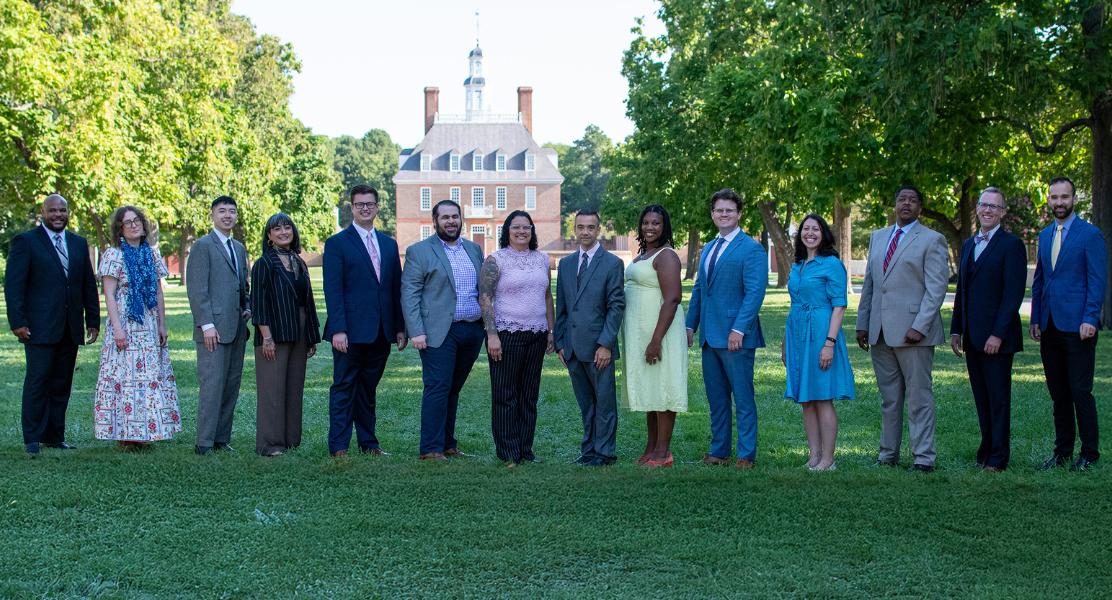
The 2025 class brought together 14 young professionals from across the country, representing a range of professions — educators, clergy, nonprofit professionals, social workers and health care workers. This group highlights an important foundation of the program: religious freedom intersects with issues across all sectors of society, and we all have a role to play in protecting it.
Over five hot summer days during the first week of August, the 2025 BJC Fellows gathered in Colonial Williamsburg, Va., and participated in sessions on Christian nationalism, religious exemptions in our nation’s legal landscape, Baptist history and its deep connection with religious freedom for all, and much more.
The BJC Fellows come from diverse theological, educational and geographic backgrounds, all united in their call to defend faith freedom for all. Scroll down to read reflections from the 2025 class.
For more on the BJC Fellows program, visit BJConline.org/Fellows.
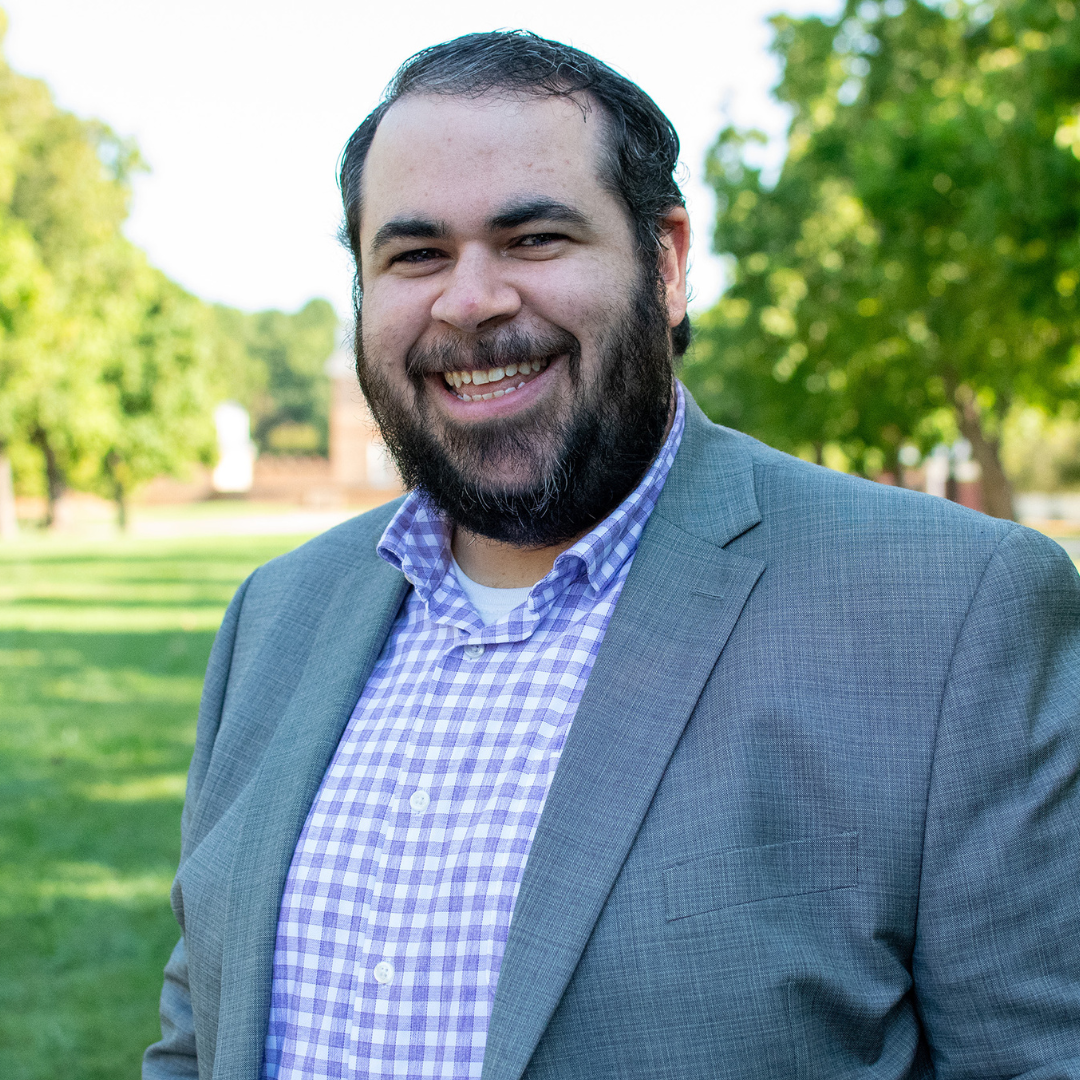
While a majority of our time was spent indoors, with distinguished speakers, activists, and academics, the most meaningful part for me was when we had the opportunity to take a tour of Colonial Williamsburg. We meandered through the town on a summer morning, sweat pouring out of us while we drank in the stories of this country’s founders; both the famous names and those of the often-ignored enslaved people who built the literal foundations of our country. Much of what we do when we advocate is tell stories because people connect to stories. And a story is more real when parts of it are tangible, like the setting. …
Kale Anderson / Little Rock, Arkansas
Since I liked the tour so much, the idea of taking a late-night ghost tour later in the week made me giddy. … I think part of the reason I like ghosts is that I don’t think they exist. Not in the “ephemeral consciousness listlessly drifting out of proper time and space;” or historic-looking holograms depicting tragic events; or “wayward spirits mourning the lives the lived” ways, anyway. I do think they exist in the way that stories and history haunts our imaginations. Those ghosts pick at the edge of your mind and force you to imagine the great tragedies, horrors, triumphs, and mythologies of our history.
I think of the ghost of the Rev. Gowan Pamphlet — I first encountered him in the Rev. Dr. Nathan Taylor and the Rev. Dr. Corey D.B. Walker’s stories of the first Black church in America being excavated in Williamsburg, and I encountered him again when we listened to the historical interpreter who has portrayed the Rev. Pamphlet for 30 years. The tragedy of his story haunts me because I’d never it heard before. Like so many other non-white, non-male figures in history, he wasn’t present in my grade-school history textbooks. However, I think I encountered his spirit in Colonial Williamsburg.
Similarly, the ghosts of the Baptist preachers at the jail haunt me. Their sermons on separation of church and state resounded as much because they were delivered from behind bars as they did because of the volume at which they were preached; showing us glimpses of what it meant to preach religious freedom when that was tantamount to treason against the king.
We heard so many ghost stories that week, and I think they are as haunting as any ghost in any movie. Like ghosts in movies, they leave unfinished business. They bedevil and trouble us, refusing to leave us alone until we can finish the work that they started: guaranteeing religious freedom for everyone.
I’m a woman who was born and raised in one of the oldest colonies in the world, Puerto Rico. I’m the youngest of my five siblings, and I was raised in an extreme poverty situation. My upbringing gave me a few lenses through which I see the world: poverty, woman, Puerto Rican, Latina, marginalized. Living on the margins gave me an aptitude to read between lines, to see what is invisible, and to use my imagination to find the gap where I belong. Sometimes I use my imagination to create a place I cannot find for myself. … I had the feeling that a guided tour of Colonial Williamsburg — such a touristic place — led by people from the United States was going to be another day that I would have to utilize my preferred tools (lens frames) to view the world through a feminist lens and the hermeneutics of suspicion. …
Rev. Abigaíl Medina Betancourt / Cataño, Puerto Rico
When I looked at the schedule, I only had names and positions: Rev. Dr. Nathan Taylor, Executive Director of the Virginia Baptist Historical Society; and Dr. Corey D. B. Walker, Dean of Wake Forest University Divinity School. I wasn’t expecting critical analysis on the tour, so I was ready to find the non-official story in the cracks.
To my surprise, Nathan and Corey did a great job together. First, they made clear that this is not a real town, that people were relocated from the land to create this artificial town. They also showed us the house of the person who decided not to leave, as a testament to the resistance. Corey helped us to look through the cracks of official history by giving voice to the slaves, and Nathan made sure to share facts even if they were inconvenient for the history of the United States. It was comforting not to have to do all the critical thinking by myself.
Of course, there were always some readings I had to do on my own, given the time constraints and their use of their own lenses. I kept asking myself about the people who were barely mentioned during the weekend. Not the 500 enslaved people who attended the Baptist Church, but the people who practiced African religions were not allowed to practice them. Or the ones that stopped believing that there is a God, and if there is one, it is a sadist for not halting the hell they were living in.
Yes, some men were allowed to be religious leaders, but what about the women who were not allowed to have a position, rather than to be a baby carrier, a currency maker? I heard stories about how white Protestant Christian males built the town, wrote the constitution from the center without considering the periphery. What about the women and children? What about the atheists, the people who practice any other religion that is not Abrahamic? I think about them during the times of Colonial Williamsburg, but also today. What can I do to make sure that 300 years from now, the tour guide shares their stories? How can I continue reading the stories that silences tell?
Let’s start writing them.
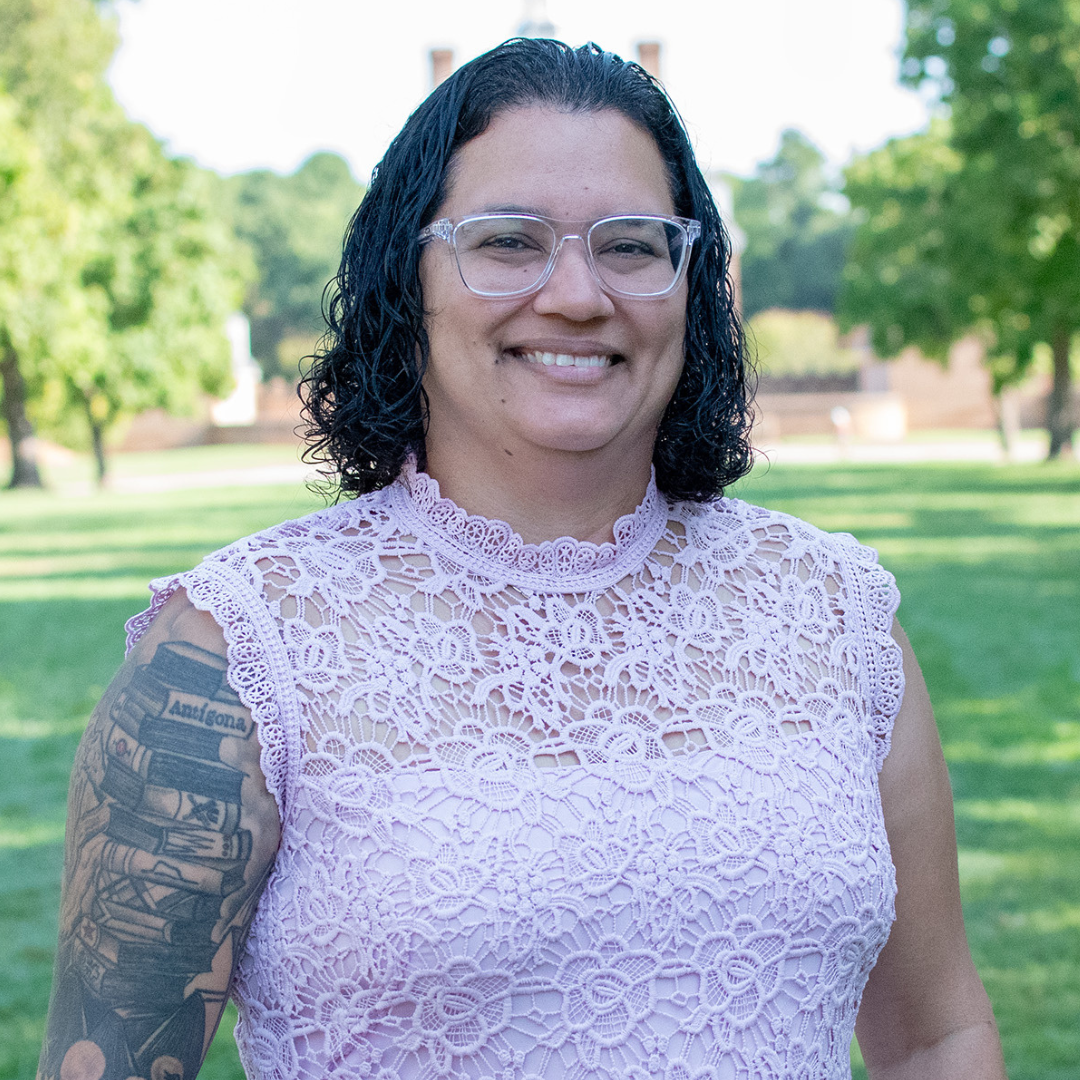
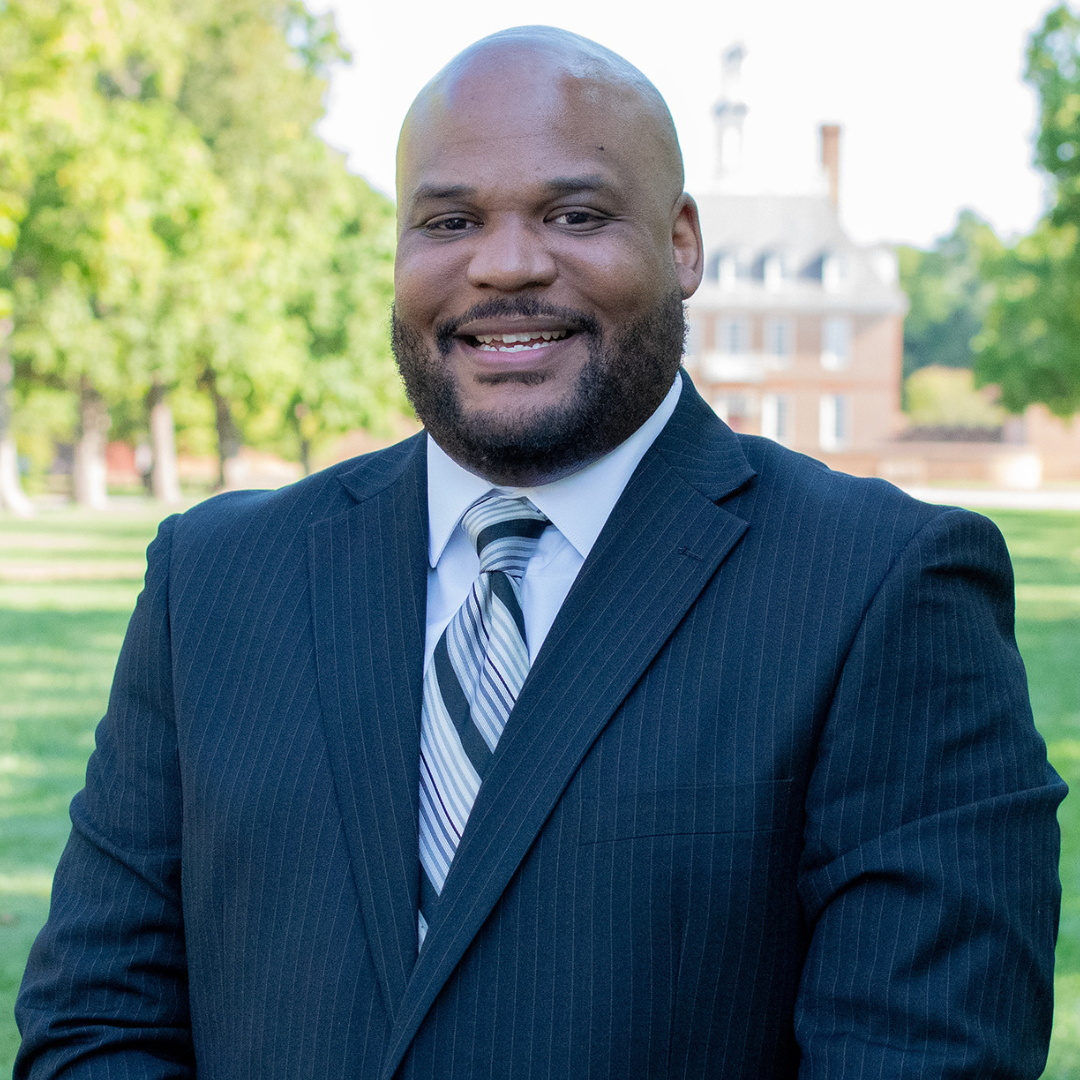
As our world continues to face new age challenges “redeveloped” from an old age script, we must learn from the past in order to secure our future. Lessons learned from the women’s suffrage movement, the modern civil rights movement, and that of Stonewall and others can teach us how to survive and eventually vanquish the rise of destructive movements like Christian nationalism. …
Rev. Christopher M. Coates / Rocky Mount, Virginia
One of the most meaningful and impactful illustrations of entertainment in my social genesis was the African American sitcom “A Different World”. For seven seasons, audiences witnessed the personal growth, development, and evolution of Dwayne, Whitley, Ron, Kimberly, Jaleesa, and Freddie as they meandered through the fictional Hillman College. They learned that it truly was “a different world from where they came from.” As I reflect on A Different World, I cannot help but think this is also how our world should approach conversations around religious liberty and freedom.
The show had a long history of addressing complex and nuanced subjects. These fictional characters had to confront issues they had never before encountered, issues they may have personally disagreed with, or issues they did not yet fully understand. Their evolution teaches us a valuable lesson about how we might engage in critical conversations concerning religious freedom. Religious freedom is far broader than many perceive. Too often misunderstood or feared, it is not something to resist but rather something to embrace.
What always anchored the show, in my opinion, was its connectivity to history. It was no accident that these fictional students attended a historically Black college, a cultural institution rooted in the struggle, survival, and preservation of the African Diaspora. This grounding in heritage gave depth and context to the growth of Whitley, Dwayne, Ron, Kim, Freddie, and Jaleesa. As we engage in dialogue about the importance and impact of religious liberty and freedom in our society, something must ground us. We must not be just grounded to our religious convictions, but there must be another apolitical anchoring force. Just as the students of Hillman College cleaved to their unpleasant and complex history, that history would inspire them to be and do better than the previous generations. We too must cling to the past as a motivator, not only in what to continue in but also in what to discontinue.
As we anchor ourselves in the aegis of history for the fight for humanity we must acknowledge this single reality, that the world as we know it is different. Just as “A Different World” challenged its characters to expand their perspectives, true religious liberty challenges us to respect and protect the diverse convictions of others—even when they are not our own. The heart of religious freedom is not uniformity, but it is a sort of unity, a unity with dignity: the right of every person to believe, question, and worship without coercion or fear. When we safeguard religious liberty, we are not simply protecting a set of abstract principles, we are preserving the very possibility of a “different” world where dialogue, growth, and mutual respect can grow and eventually blossom into what Dr. King called the “Beloved Community” because it’s a different world from where we come from.
My time at the 2025 BJC Fellows Seminar was transformative on multiple levels. Personally, my time in Colonial Williamsburg provided a space for deep reflection and growth. Standing in the very city where the Rev. Gowan Pamphlet, an enslaved man turned Baptist preacher, led one of the earliest Black congregations in America, I felt connected to a lineage of courage that continues to shape my vocation. Learning his story, along with the stories of other faith ancestors who fought for religious freedom for all, reminded me that the Baptist tradition is at its best when it insists on liberty of conscience and dignity for every human being. These lessons speak forcefully today, as we watch similar obstacles to freedom — Christian nationalism, racial injustice, and efforts to exclude the vulnerable — rear their ugly heads once more. …
Rev. Caleb Cooke / Bowie, Maryland
Professionally, this seminar drew me into community with leaders across the United States who are passionate about creating environments where everyone feels seen and secure. Our cohort included pastors, organizers, educators, and advocates, each bringing wisdom from their own contexts. In a moment when headlines often obscure the light with relentless bad news, we created a space to share stories of hope, resistance, and commitment. These conversations reminded me that the struggle for freedom is not solitary but shared, and they provided fuel for my own ministry at Village Baptist Church, where we are striving to build a beloved community rooted in inclusion and justice.
Looking ahead, I leave the BJC Fellows Seminar with renewed conviction and new partners in the work. The stories I heard in Colonial Williamsburg will not remain there, for they will inform my preaching, my organizing, and the way I shepherd a congregation to see itself as part of God’s wider movement for freedom. The BJC Fellows community will continue to be a source of encouragement and accountability, ensuring that my ministry remains rooted in hope even in difficult times.
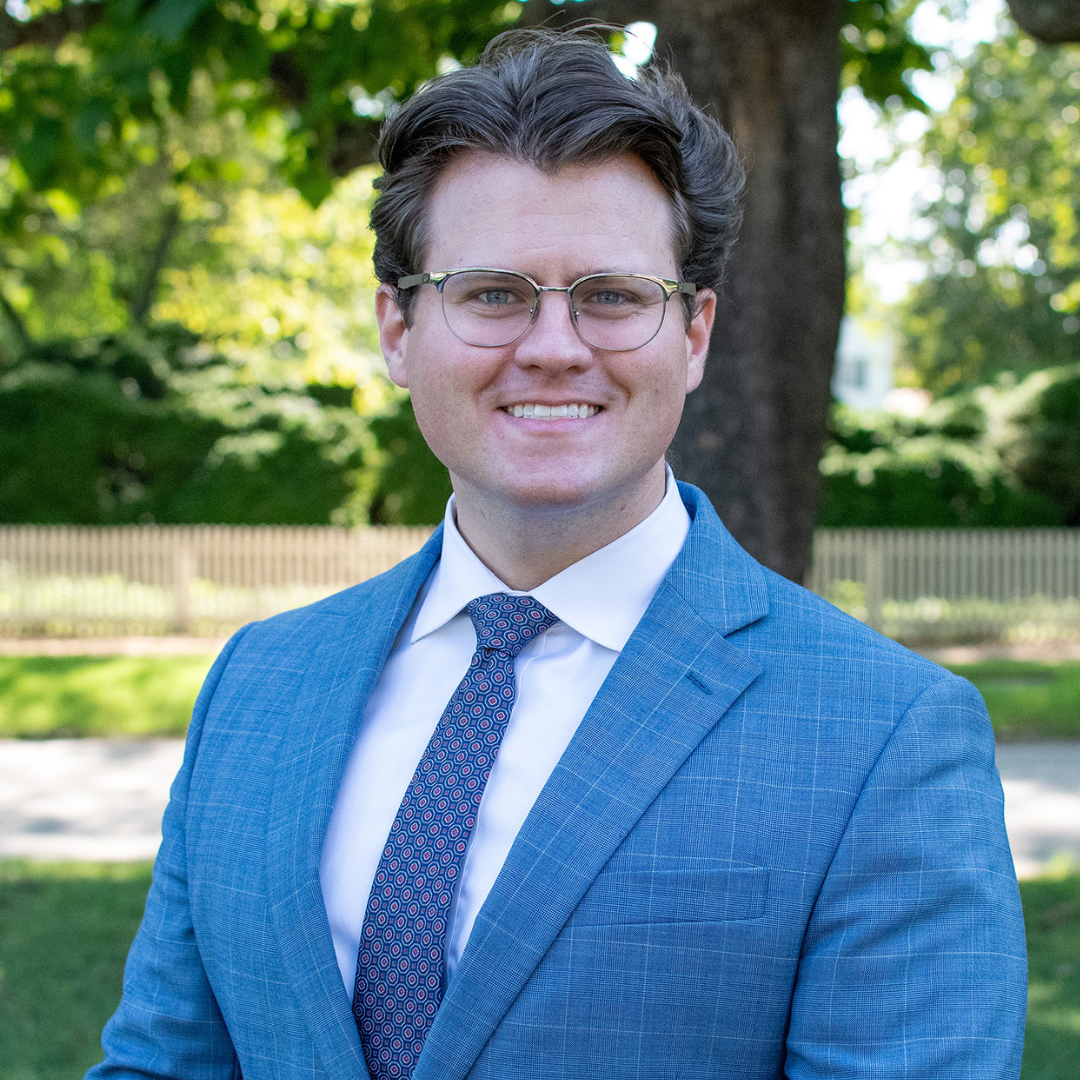
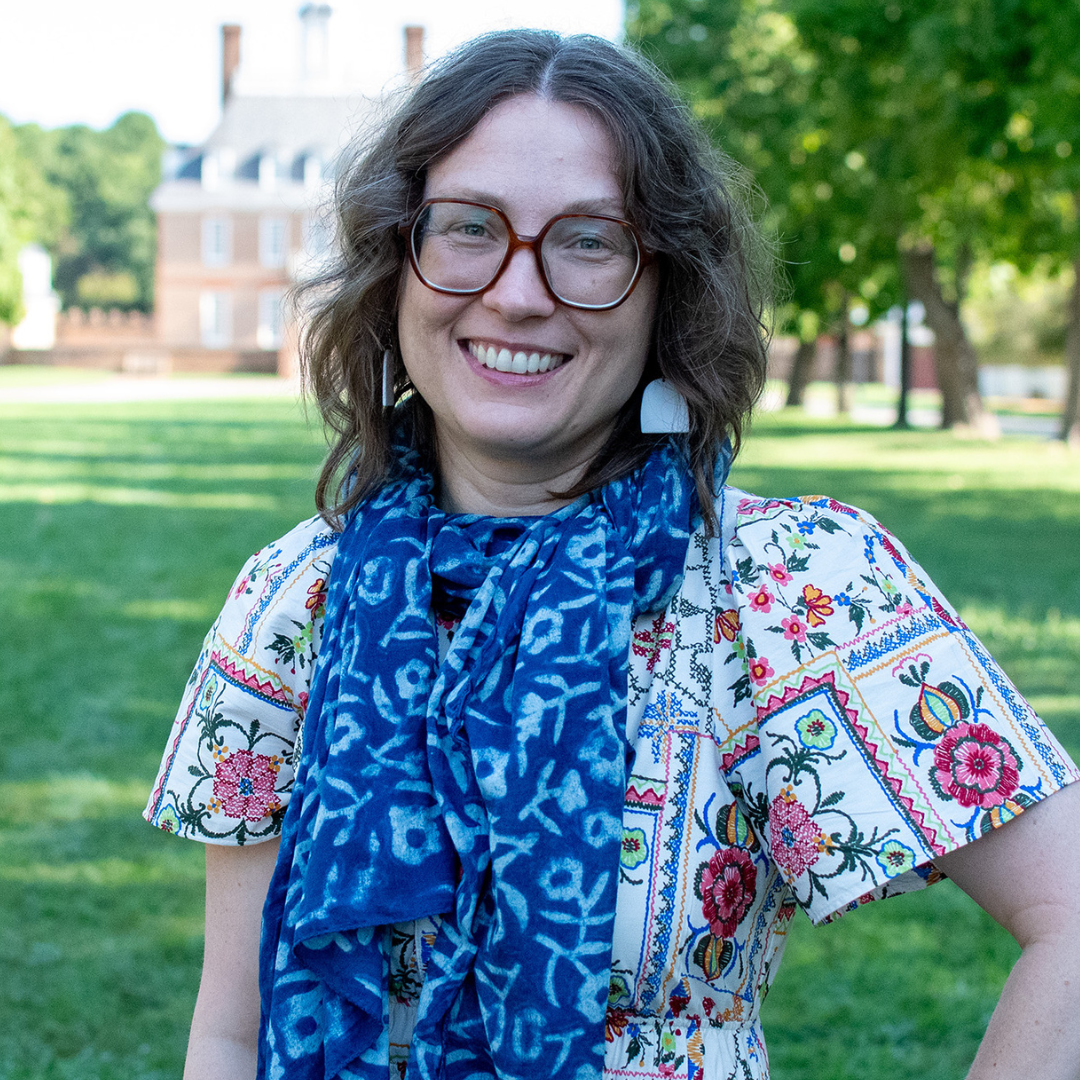
Before my time in Colonial Williamsburg, I understood religious liberty as a noun – a concept. I now understand it as dynamic movement. It is the freedom to move and be moved while providing space for others to do the same, without coercion or conformity. It is the humility to know that my way of connecting with the Holy is not the only way. It is the openness to sit down with others, willing to be moved and inspired by them. Religious liberty invites and welcomes all to make their own plate and sit down to be nourished together. …
Rev. Alexis Engelbrecht-Villafane / Claremore, Oklahoma
The concept of a shared meal expanded in a meaningful way when, during a panel session, Arthur “Ro” Fibby told my cohort about a yearly gathering he hosts in which he invites people to “get yourself a plate and sit down.” Thanks to the musical taste of my seventeen-year-old son, Kendrick Lamar’s words “be humble/sit down” swelled into the soundtrack of my mind. I began to re-envision what is called “the table” in my tradition as an open and fluid meal in which everyone takes a plate and sits down with humility among others in a spacious lawn. My vision of Ro’s gathering involved an assortment of lawnchairs mingling with no discernable shape creating a colorful mosaic across the grass. The plates in this vision are not identical. People select what they need and want. The colors, smells, and tastes are as varied as the guests who contributed to the offerings. Movement is free and easy.
Ro’s words and the gathering he described provides a way for me to envision and explain religious liberty more expansively than I could before being part of the BJC Fellows program. Moving toward true religious liberty means valuing my freedom to choose how I worship and valuing and welcoming the ability of others to make their own selections. Religious liberty is not a formal table with a rigid seating chart and a limited menu. It is the vibrancy of an open lawn with space for dynamic possibility. Here, one is free to move one’s chair, select one’s meal, and sit beside people with different chairs and different plates, all while being nourished by a shared sense of freedom. This is not a table of forced conformity; it is a space of free expression. Such a gathering of organic connections and the sharing of ideas only works if all involved are willing to, in the combined words of Ro and Lamar, “grab a plate, be humble, and sit down.”
If a world where all people are beloved and included is possible, then faith freedom for all must be preserved to get us closer to realizing that redeemed future. In a day when those in power are seeking to wield religious influence over the mechanisms of government and over individual liberties, practicing an inclusive religious liberty is more important than ever. People of all religious traditions and none must be included in crafting a vision for whom we will become as a nation. When any one religion or ideology begins to exercise undue influence in the workings of our government, we all suffer. The BJC Fellows Program reminded me that our nation’s founders knew this, and that we would be well served not to forget it. …
Rev. Zack Jackson / Hattiesburg, Mississippi
Those who spin tales today of a “Christian America” that never existed seem determined to communicate revisionist histories and convince us that there is a former iteration of our country that must be revived for the United States to know peace and prosperity. This could not be further from the truth. Words and stories matter. They define our vocabulary, our foundational myths, and the boundaries for what we might dare dream is possible. And so, the BJC Fellows Program challenged me again to use words and tell stories of consequence. There is so much noise in our world today, but too little of what we hear is ever measured and principled. When I preach and teach, I am learning that I must consistently work to resist and complicate the dominant narratives permeating our culture. Jesus did this, and it is the task I have inherited in my lifetime as one who makes every effort to walk in his way and preach a gospel of radical belonging, wide-open inclusion, and limitless love.
As my BJC Fellows cohort toured the grounds of Colonial Williamsburg, I was inspired by the stories of rogue preachers who once dared to proclaim the gospel without government licensure. Some brave souls were jailed for this offense, and legend says they went on preaching from their jail cells, drawing substantial crowds. Perhaps this kind of faithful commitment sounds a bit extreme, but I am reminded that from a Birmingham jail, the Rev. Dr. Martin Luther King, Jr. once wrote:
“Was not Jesus an extremist for love: ‘Love your enemies, bless them that curse you, pray for them that despitefully use you.’ Was not Amos an extremist for justice: ‘Let justice roll down like waters and righteousness like an ever-flowing stream.’ Was not Paul an extremist for the Christian gospel: ‘I bear in my body the marks of the Lord Jesus.’ Was not Martin Luther an extremist: ‘Here I stand; I can do no other.’ Was not John Bunyan an extremist: ‘I will stay in jail to the end.’ Was not Abraham Lincoln an extremist: ‘This nation cannot survive half slave and half free.’ Was not Thomas Jefferson an extremist: ‘We hold these truths to be self-evident, that all men are created equal.’ So, the question is not whether we will be extremists, but what kind of extremists we will be.”
My prayer is that I would be an extremist for love and justice. In today’s climate, these values sadly seem increasingly at odds with prevailing attitudes. I do not have to tell you that we are faced with heightened political polarization, contested trust in institutions, and intensifying social tensions around race, immigration, and civil rights. Couple this with economic and global uncertainties, and American citizens are having to navigate a rapidly shifting and often divisive landscape. But we have stories to draw on from across religious traditions and our nation’s history to inspire us toward hope and action. As we tell these stories that matter, let us push back against incomplete, revisionist histories and work together to fashion a future where all people are seen as beloved, included, and critical to the work of love. For this, I believe, is how we build God’s kin-dom here.
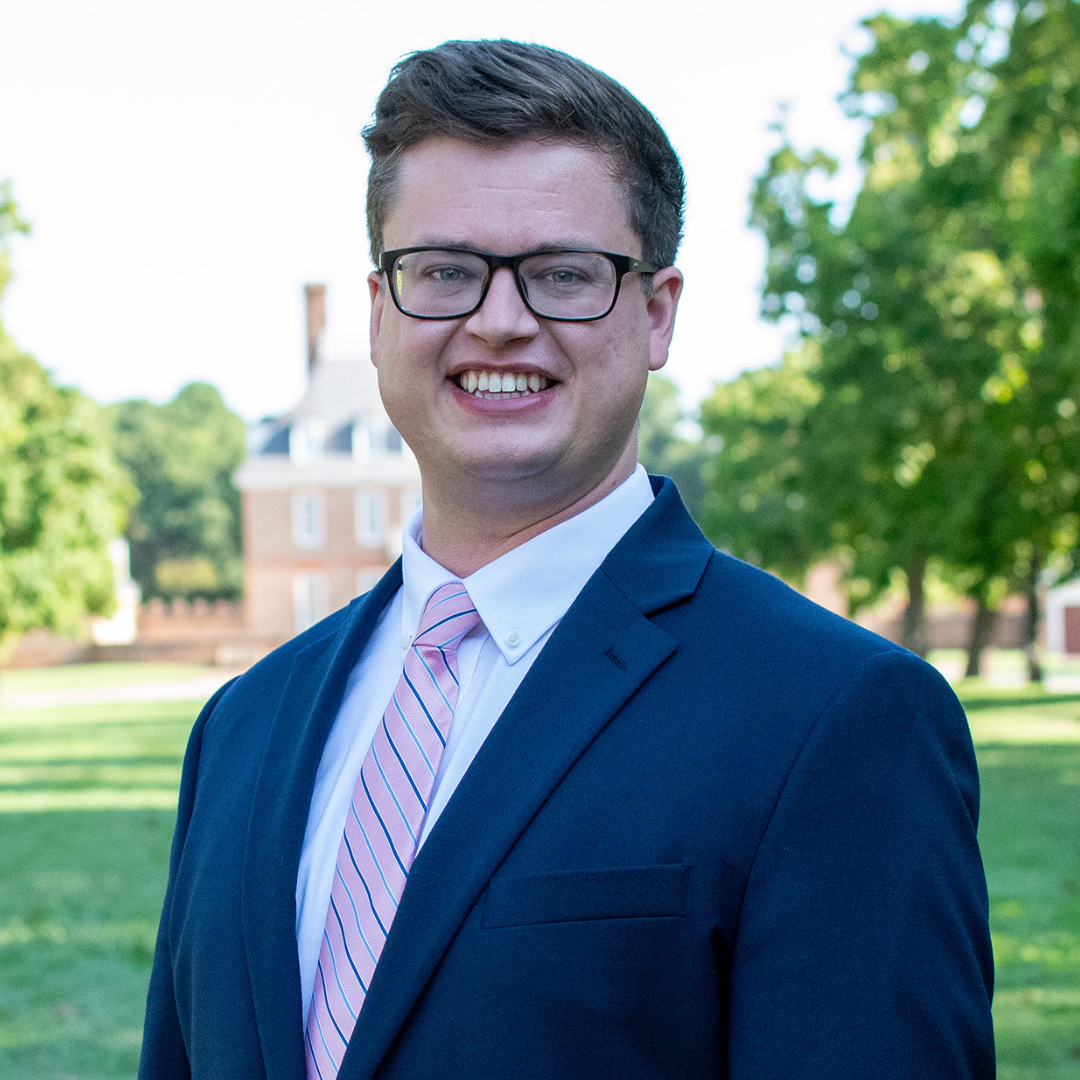
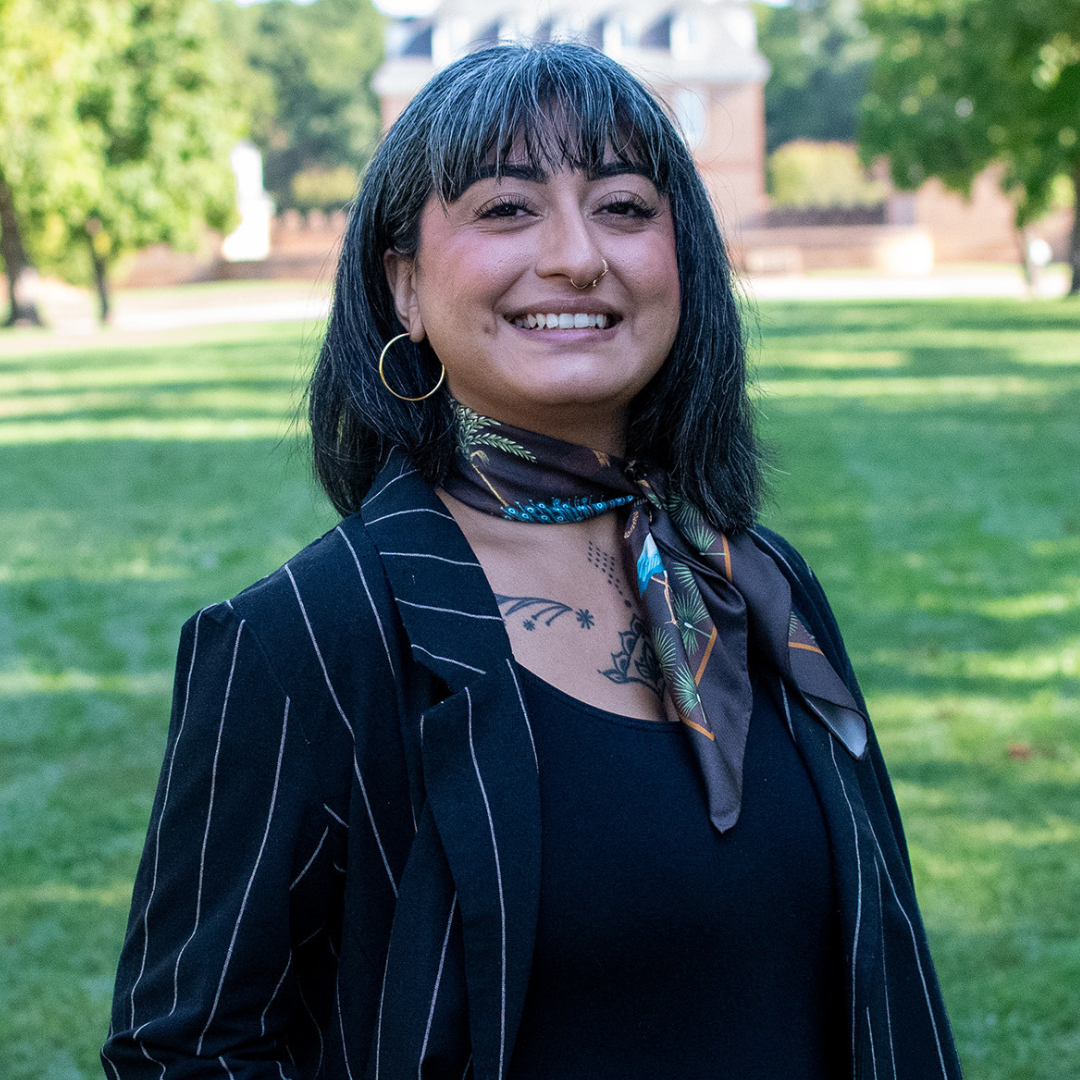
As we stood before buildings I’d walked past a million times before, adding important context to the people who labored and resided there, I caught up with my new colleague and fellow Fellow, the Rev. Aaron Tinch. He asked what I was reflecting upon being back in a prior hometown and feeling a familiar discomfort walking through arguably the most famous intentionally funded reproduction of Britain’s colonial legacy in America. I told Aaron, “I used to walk these streets and feel all the ghosts. I still feel them now.” …
Harmeet Kaur Kamboj / New York, NY
I spoke of the ghosts of enslaved Africans who hid their Qur’ans and traditional spiritual altars from their enslavers for fear of forced conversion. And of the ghosts of the displaced and murdered Indigenous people whose sacred land was stolen to create towering monuments to the Church of England. These ghosts walked with me as a 20-year-old college student, and they were walking with me again as a 30-year-old BJC Fellow, reminding me that none of this was for me.
It was all for the empire that for hundreds of years has used and abused my people and so many others.
The ghosts reminded me that British colonial violence lives on in this place: through the erasure of non-Christian spiritual traditions and practices in all the narratives we consume about Williamsburg and its free and enslaved former residents; through the theme-park-like atmosphere welcoming visitors to cosplay colonial privilege without reflecting on the human cost of that privilege; through the first racist encounter I experienced just a day or two after arriving to Williamsburg in 2012 for my freshman orientation, from the tongue of a shop clerk in Merchant Square; and through the ongoing racist economy of this town that asks an elderly Black bellhop at the Williamsburg Lodge to hold the door open all day for white patrons paying $300 a night to sleep there.
During our group tour that morning and on my lunchtime walks down Duke of Gloucester Street throughout the week, I communed with the ghosts. Unseen, unheard, but deeply felt. We communed over our shared pain at the hands of a shared oppressor and the ways that white empire has and continues to rob our peoples of our agency, our dignity, our voices, and our traditions.
My experience at the 2025 BJC Fellows Seminar felt unique compared to the rest of my cohort in a couple different ways. First, as an alum of the College of William & Mary, returning to Williamsburg felt like a homecoming in some important ways. I was “coming home” to a town in which I resided for three years and a neighborhood (Colonial Williamsburg) I walked through, observed, and reflected upon several times a week during that time. Second, I was one of just a couple fellows who did not identify previously or presently as Christian. I’m a follower of the Sikh faith, a community that makes up less than two percent of the U.S. population but stands as the third most-impacted religious group by hate violence, according to new FBI statistics. It was through these lenses – as well as my lens as a first-generation immigrant born in the U.K. – that I walked through our five days at the BJC Fellows Seminar this July.
By the end of the BJC Fellows Seminar that week, I found myself reflecting on the BJC’s call for Faith Freedom For All and how de-centering and de-privileging colonial legacies is an absolutely critical piece of that work. Christianity is not indigenous to this land; it is neither the beginning nor the end of the story of religious freedom in this country. White Christianity has stripped many peoples of their faith freedom – so what is the responsibility of white Christians today to restore faith freedom for all? They must de-center themselves, their histories, and their needs to make room for those who have been de-centered – or entirely erased – because of the actions of white Christians throughout this country’s history. The faith freedom of my ancestors, my living family, and myself has been stripped from us by Christian empire and by white Christian privilege. Can Christian leaders today learn to repair this damage by communing with themselves, by hearing from themselves, and by seeing themselves reflected most in history? I don’t think so.
I gained a great deal from my time at the BJC Fellows Seminar in Williamsburg, but we all also missed a great deal: what was unseen, unheard, but deeply felt. The ghosts and presences of those most impacted by the colonial legacy being celebrated around us. The traditional African cosmologies, Islamic observances, Indigenous practices, the voices and views of the colonized divorced from the Christianity brought to them by a violent oppressor. From the reflections we all shared at the end of the week together, I could tell these ghosts were deeply felt by all. Now, how do we make them seen and heard in the ways they deserve?
When we think about religious freedom, I urge all of us to paint a broader picture. Hearing new voices does not mean we throw out the old, but it means we make space for and listen to and look for those who have been previously silenced. Instead of thinking about religious freedom as a zero-sum game, how do we make it expansive? How can we add depth to the single stories we hear? How can we make sure to broaden our own minds beyond our individual lenses?
Christine Krieger / Baltimore, Maryland
On my second morning in Williamsburg, I went for a run. I jogged through the streets in the muggy August heat, weaving through the campus of the College of William and Mary to the Duke of Gloucester Street, circling the Governor’s Palace Green, and ending right in front of the courthouse, capitol building to my right and Bruton Parish Church to my left.
In the stillness of the early morning, I was able to look up and down the street to see the meticulously restored buildings, the pristine gardens, and the small relics dotting the landscape: stocks at the edge of the courthouse steps, tents set out for soldiers by the artillery building, and a cannon just beyond the slope of the hill. This was the image of colonial life, carefully curated to tell the story of the birth of the United States.
Whose story, though, was it telling?
History is written about the people in power by the people who hold power. There is a reason that, for centuries, our history books have focused on wars and kings and politics—when people have a voice and a means to amplify it, they want to make sure they’re heard. Over time, their stories become the main character arcs, and everyone else’s voices are sidelined as extras.
How often, when we tell a story, do we take time to think how different it would be if told by someone else? What if we reconsidered the dominant narrative and instead looked for the stories at the margins, the experiences of those who lack the power but are equally as human?
When I think about religious freedom in this context, I am reminded of the need to listen for the voices at the edges: the underrepresented, the historically marginalized, the oppressed and suppressed. Religious freedom does not just mean that the loudest voices get to practice exactly the way they want with no regard for others; it means that we find the balance between what we view as sacred and the recognition of the humanity and values of those around us. Being able to practice my beliefs should not diminish yours.
During the BJC Fellows Seminar, we discussed the many facets of religious freedom. We wrestled with the ways that history, practice, and the legal system work, sometimes in tandem and other times in opposition, to allow for people to express themselves freely. Since then, I have been reflecting on these ideas of balance and duality and what it means for us to live in a religiously pluralistic democracy. How do we hold two or more ideas simultaneously? How can we maintain the balance between religious and political life, knowing that it is impossible to keep them siloed from each other? What does it look like to champion religious freedom for everyone, not just the ones who already have the most power?
That morning in Williamsburg, as I paused in the quietude, I took a moment to add the layers. I saw the Black enslaved people out doing morning work, still one hundred years from freedom and citizenship; the women, a century and a half from the 19th amendment; the Indigenous boys taken from their families, their descendants not to be affirmed as voting citizens for nearly two hundred years. Their voices are part of our history; they are the narratives we are called to weave into the common knowledge, to highlight with the same intensity as our louder ancestors.
Though I have come away from this experience with more questions than answers, I am sure of this: as we find our own voices in this fight for religious freedom, let’s make sure to find someone else’s too.
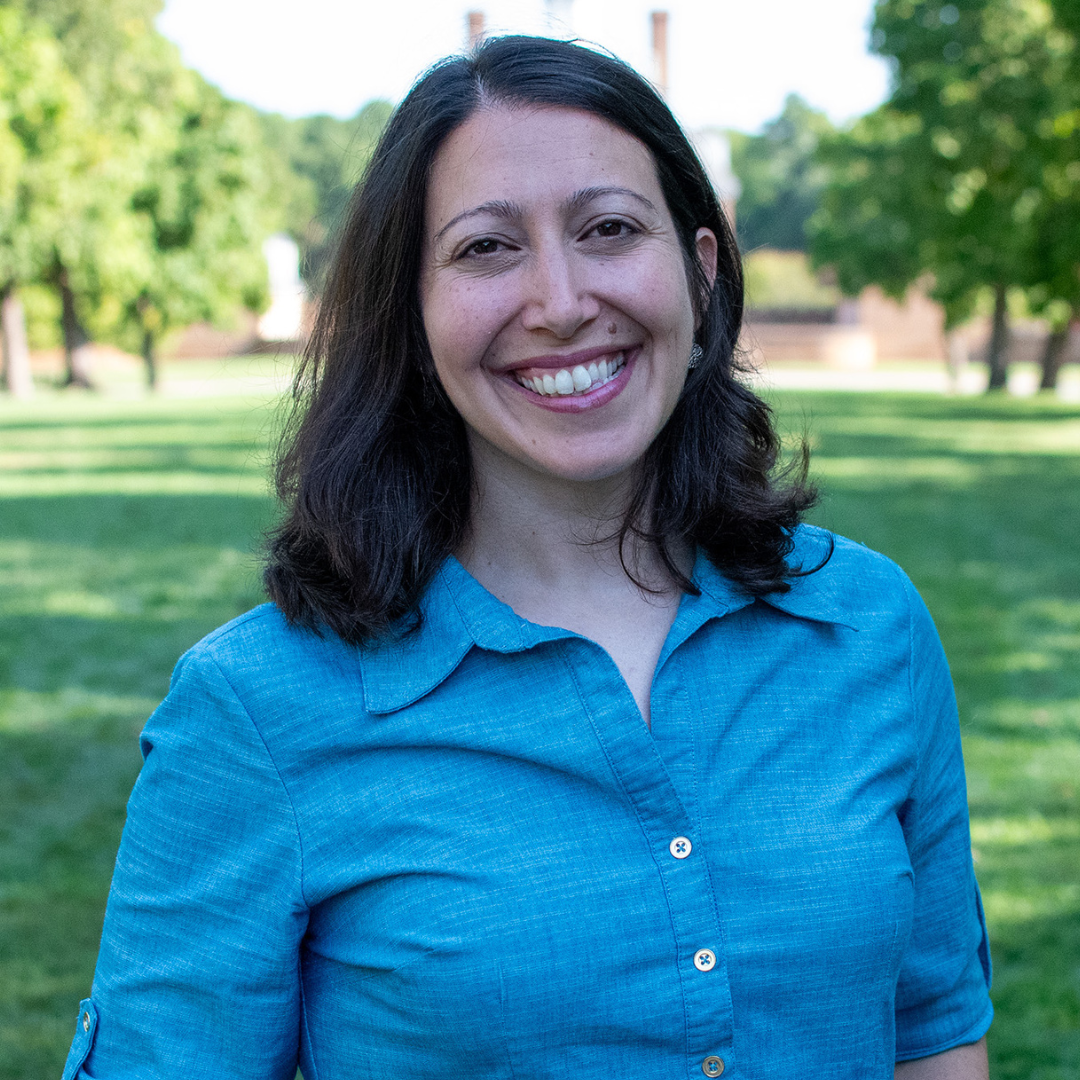
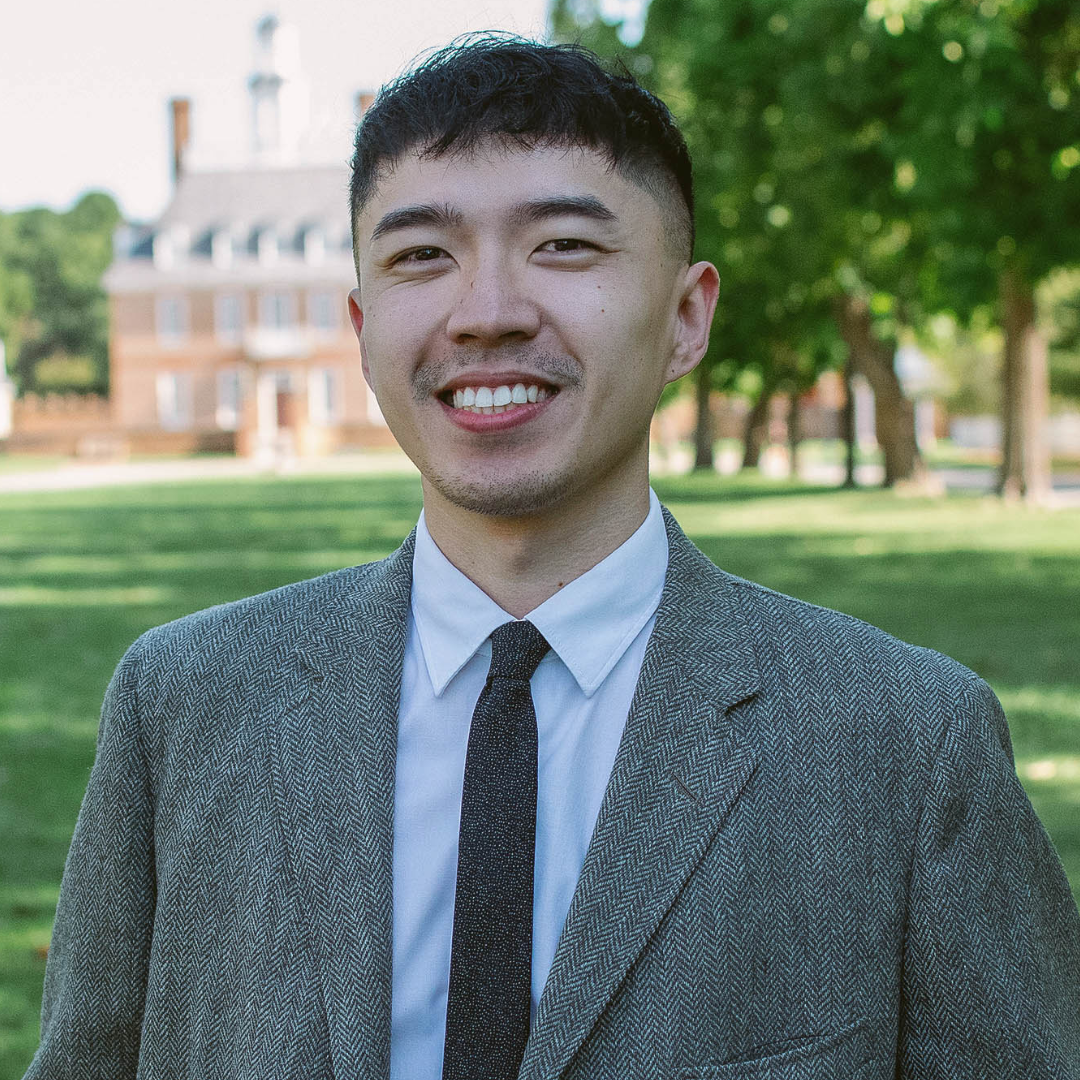
As arrived in Colonial Williamsburg and broke bread and connected with the other BJC Fellows, I found myself immersed in stories, experiences, and perspectives that I, in my early young adulthood, would have found either irrelevant or threatening to the particular theological tradition and dogmas that I was pulled into and that I made a defining part of my identity. And although I’ve come to see the fallacies of and unlearn these once-formative views over the past few years, I was still embedded in comfortable social environments where I was living. The BJC Fellows Program was a step outside of this comfort that could not wait any longer …
Victor Lee / Philadelphia, Pennsylvania
I came to learn that this was not a space that I was only privileged to be a part of for a few days but a kind of space that I needed and that was missing in my life. I found myself sharing my own stories of discovery and pain that was met with care, thoughtful curiosity, outrage, and solidarity.
One instance that continues to stick out to me is from the last full day of the program when one of the BJC Fellows reacted to a disheartening life update related to the current presidential administration—for the next few minutes, he spoke nonstop with a deep sense of anger and understanding. I did not have to explain my experience for this brother to know how it was because of his own experiences, and I did not have to convince him to be angry with me. This was a distinct moment that made me realize how concretely we were all in this together and how much we actually need one another. At the age of 31, I learned again that I need to, more than ever, step out of my comfort and place myself in the company of those who don’t look like me, sounds like me, think like me, and most of all those who are committed to sticking their necks out for and building community around those who don’t look like them, sound like them, or think like them.
I learned during this week that a part of me comes to life when I don’t have to explain myself to be understood. And I learned that I am more and more drawn to advocate for and build up those who are different from me the more time I spend with them. To love my neighbor as myself never looked so different from how I understood love when I was in a theological tradition that likely would have been on the historical side of the slave-master or the willfully negligent rather than the abolitionist or the civil rights leaders, and it never felt so urgent.
This time together with the BJC Fellows led me from relating to solidarity as a concept to solidarity as an irresistible urge from the wells of my soul.
We looked back to the colonial beginnings of how religion and government interact in our country during the BJC Fellows Seminar, including the difficult experiences of early Baptist preachers in the Virginia colony who were outside the official state church – the Anglican Church – and who therefore did not have a license to preach and would be fined and/or jailed and then expelled from the colony never to return. …
Rev. Tom Reid / Newton, Massachusetts
We heard stories of dissenters (including some Presbyterians) who persisted in their faith and carried on despite the pressures and punishments meted out by the colonial government. And it was experiences such as these that informed the work of the framers of the Constitution and their deep commitment to religious pluralism in the colonies and our fledgling nation as well as deep commitment to the fundamental importance of each individual having the freedom to believe or not believe and to practice their faith (or choose no faith) not as the law compelled but as their conscience demanded.
I don’t know about you, but to me it feels like we are in a time of deep division – particularly among those who call themselves Christian. It feels like there are groups of us who are worshipping different Jesuses and following different Lords.
We talked quite a bit about Christian nationalism — or White Christian Nationalism — during the BJC Fellows Seminar, which needs to be named as a growing threat to the church, our country and our world. The folks at BJC offered a helpful definition of Christian naturalism which I will offer here:
“Christian nationalism is a cultural framework that idealizes and advocates a fusion of Christianity with American civic life. Christian nationalism contends that America has been and should always be distinctively “Christian” from top to bottom in its self-identity, interpretations of its own history, sacred symbols, cherished values, and public policies – and it aims to keep it that way. But the ‘Christian’ in Christian nationalism is more about identity than religion. It carries with it assumptions about nativism, white supremacy, authoritarianism, patriarchy, and militarism.”
In these words, I hear the voice of Jeremiah decrying the false prophets preaching a gospel that is not of Christ but of division, of supremacy, of dreams not for all but for me me me. Not God has dreamed. But I have dreamed.
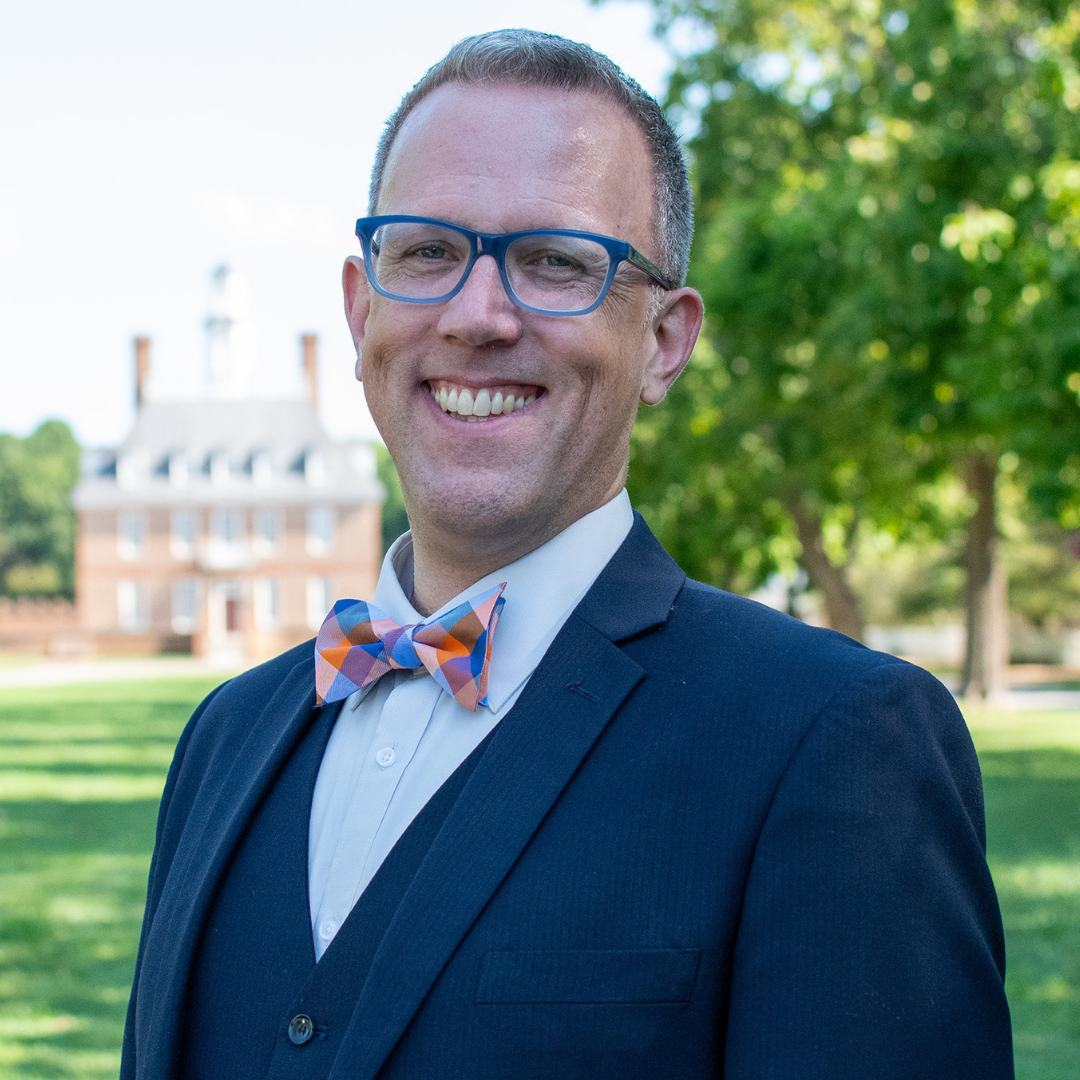
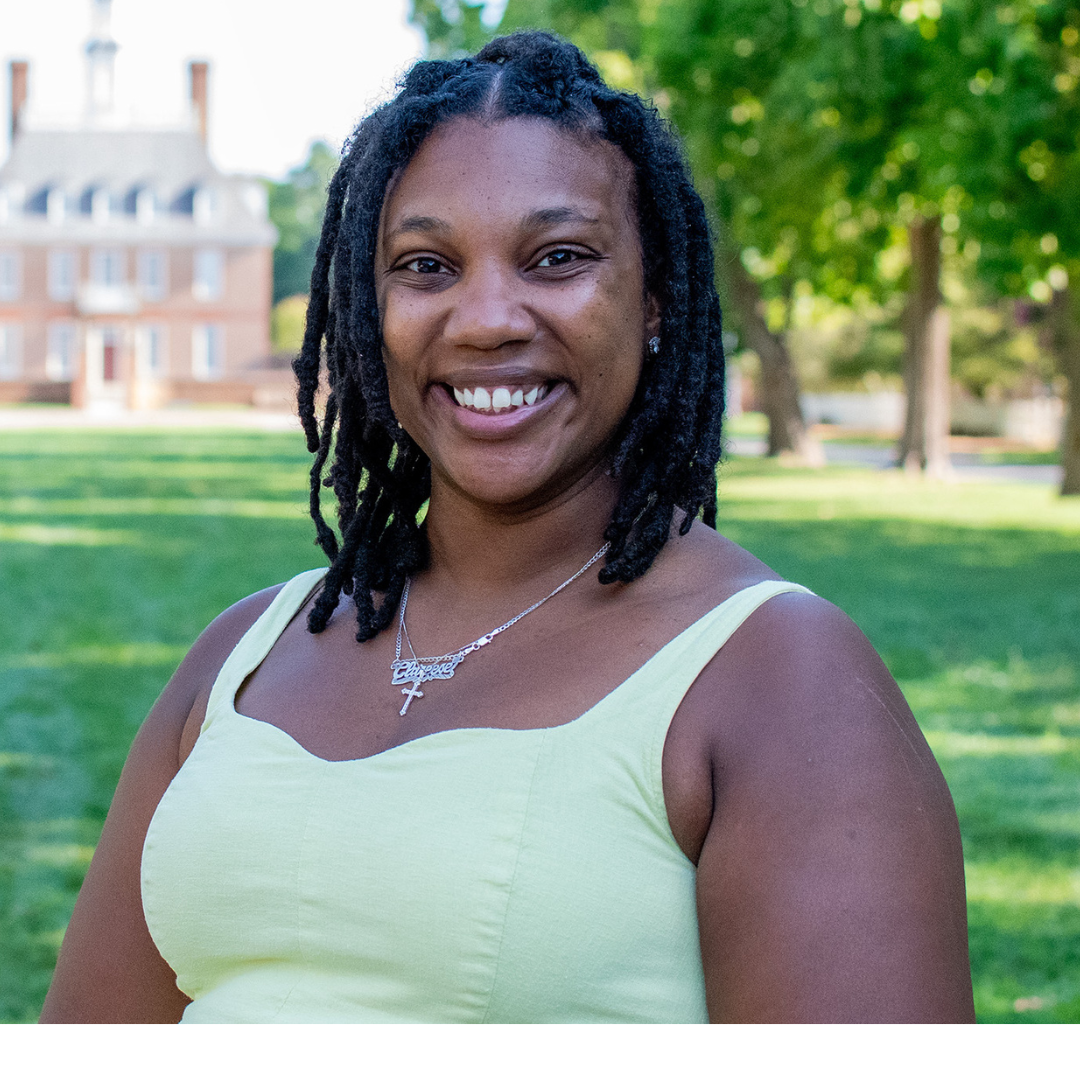
The stories, the truth is always there, we are just in need of a Dr. Walker and Dr. Nathan to guide us. A Gowen Pamphlet and a Hurunnessa to share it. A Dr. Dent, a Melissa Rogers and a Jennifer Hawks to help us understand it. A Joy and a Lisa to help us fight it. In short and by design, we need community. Time will continue to tick forward, but I was gifted the sweet reminder of what it means to take my time. When I allow myself to be swept up and along from heartbreak to heartbreak, I will only ever see glimpses and pieces of a much bigger picture. …
Clareese Saunders / Queens, NY
Almost five years ago, I sat and watched the news coverage of the insurrection — a mob of anger carrying crosses and praying stirred in me what one of my pastors calls “Holy discontentment.” This was not love. This did not represent the God that I had come to know and serve. Though it was not at all surprising, it was still heartbreaking. I wanted to do something. I wanted to say something. I wrote a blog post. I spoke with my friends and church family. All the while, time did what it is meant to do and kept moving forward. As did I.
Though ease, comfort, and complacency are not adjectives that I would use to describe my experiences being Black or a woman in this world, they do in many ways apply to my experience as a Christian. I’ve worn this silver cross around my neck since I was fourteen and attended church before I had the mental capacity to define it. As I regularly live and work within spaces where I am one of one, the sensed discomfort or offense that is provoked by my skin or my femininity can cast a long shadow. A shadow that if I let it, is long enough to eclipse the ways in which my entire lived experience intersects.
As a social worker, environment is something I think about regularly however I didn’t google Colonial Williamsburg. I nodded and smiled anytime I told someone where I was going, and they responded with how beautiful it is. Upon arriving it was clear that Colonial Williamsburg was beautiful, but it was also unsettling. While my spirit and brain buzzed with inspiration and connection, every moment I spent in sessions with the presenters and BJC Fellows, there was something I couldn’t yet put my finger on. Something that crept up and hung over me as I walked through the actual town. The peace, the overall cheeriness and performance was like looking into a mirror that provided no reflection. I was here in the present, but why was it so hard to see myself in this recreation of the past? With each session came a flood of history and passion with a more than generous dose of personal storytelling that my brain was desperate to pump to every crevice of my being. Slowly but surely, I realized, or more accurately, remembered that the mirror wasn’t the issue. Mirrors are made to reflect. But when they are dirty, broken and hidden away instead of mounted on a wall – it’s difficult to see.
One of the reasons I applied to the BJC Fellows Program was to learn more about religious freedom and how to communicate its purpose and importance to communities. However, I didn’t know how much I needed help gathering and connecting the pieces of my own story and my why. I became increasingly grateful that I wouldn’t be leaving Williamsburg with another experience of being unsurprisingly heartbroken had I perhaps visited on my own.
When I slow down amid my heartbreak and disappointment, I can choose to look again. To be curious and question the narrative. To be lovingly reminded that I will never be able to fully uncover my story alone.
When I seek to intentionally bring the different parts of my identity together, the better I can not only see my reflection but humanity’s. The great, ugly, and everything in-between. Storied lives meant to be uncovered, witnessed, and told, and I want to help tell them.
I want to keep learning where and how to look at the past so when someone asks, I can share and encourage them to do the same. I can tell them about the week I stepped back in time with fragments and emerged on the other side with communal understanding. A clearer picture of human connectedness, spirit and love. A reminder that the truth is not something to fear -it’s meant to be found. It’s the finding that propels us into futures with freedom.
We were blessed with an intimate Q&A with the inspiring duo of Hurunnessa Fariad and “Ro” Fibby that, for me, exemplified the beautiful work of grassroots work shining through different lenses. This helped foster a spirit of openness and allowed for genuine interpersonal connection between our group of 14 BJC Fellows. These spaces were essential for processing the difficult topics raised in our plenary sessions, particularly when examining the ways in which fear and hate have historically been wielded as powerful social and political tools. As someone who approaches these discussions with lots of natural empathy, I was greatly edified by the sheer quality of humans within the diverse population of our cohort. …
Lukas Smith / Los Angeles, California
From the beginning, the BJC Fellows Seminar made clear that religious pluralism is not a static concept but an ongoing, contested effort, requiring care and effort from us all.
We were immediately gifted with deep historical stories and narratives through colonial Williamsburg and the origins of our democracy. The sage words from our initial session with Dr. Nathan Taylor and Dr. Corey Walker traced the ways in which pluralism has been both upheld and undermined throughout U.S. history. The ability to see, feel and even smell the same grounds from centuries ago uniquely brought to life the power of these stories.
The depth of those experiences were enhanced by the thoughtful use of breakout groups and facilitated discussions. One of the most profound elements of the weekend was the recognition of the human cost of polarization and hostility in our current ecosystem. We discussed not only structural challenges in creating a healthy, inclusive culture but also the toll this work requires of individuals who work at it daily. On this theme, my most vivid memory from this event was the authenticity displayed by Dr. Sabrina Dent, the director of the BJC Center for Faith, Justice and Reconciliation.
Dr. Dent’s willingness to share her own experience of exhaustion and renewal left a lasting impression on me. She spoke candidly about the weight she has carried in recent months, navigating an environment where fear and division often feel insurmountable. Yet, she also expressed how this very program — with its gathering of new and returning participants — was itself a source of encouragement and empowerment. Hearing her articulate this was deeply moving. It reminded me that the work of progressing humanity is sustained not only through legal victories or historical analysis, but also through the resilience and mutual support we provide for each other in the process. This acknowledgment resonated with me because it framed pluralism as more than an abstract principle. It is lived out in relationships, in communities, and in the ongoing willingness to build bridges even when doing so feels exhausting. Dr. Dent’s honesty underscored the importance of recognizing both the difficulties and the sources of renewal that come with such work. For me, her expression of gratitude and hope has become my most enduring takeaway from the fellowship.
Looking back on the weekend, I recognize that my learning was layered. Intellectually, I gained a sharper understanding of the historical and legal frameworks that shape religious pluralism in the United States. Interpersonally, I built connections with peers who are similarly committed to navigating differences with respect and integrity. Spiritually and emotionally, I was reminded that pluralism requires resilience, empathy, and courage. It is not sustained by ideals alone but by people who habitually continue to show up, even in times of fatigue or disillusionment.
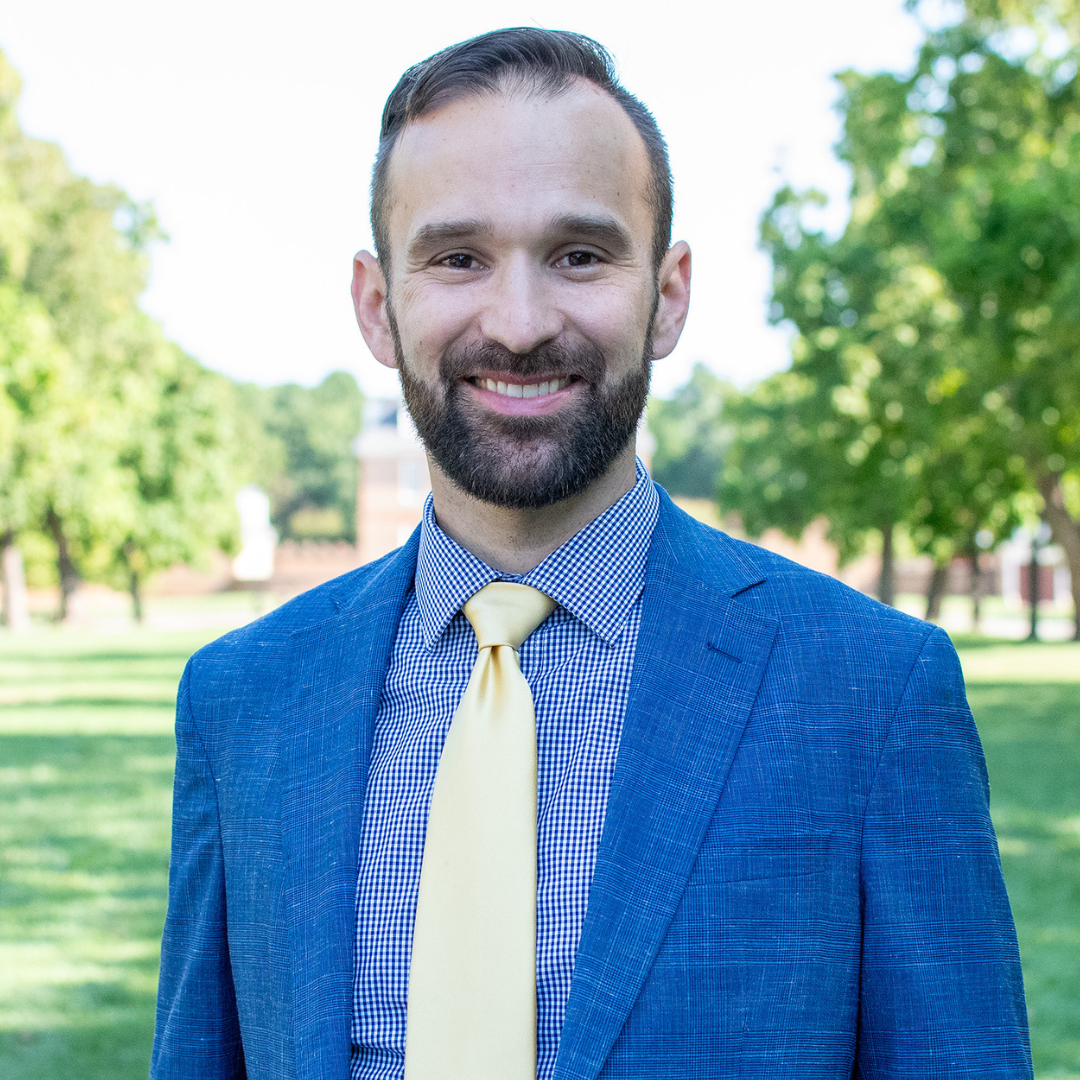
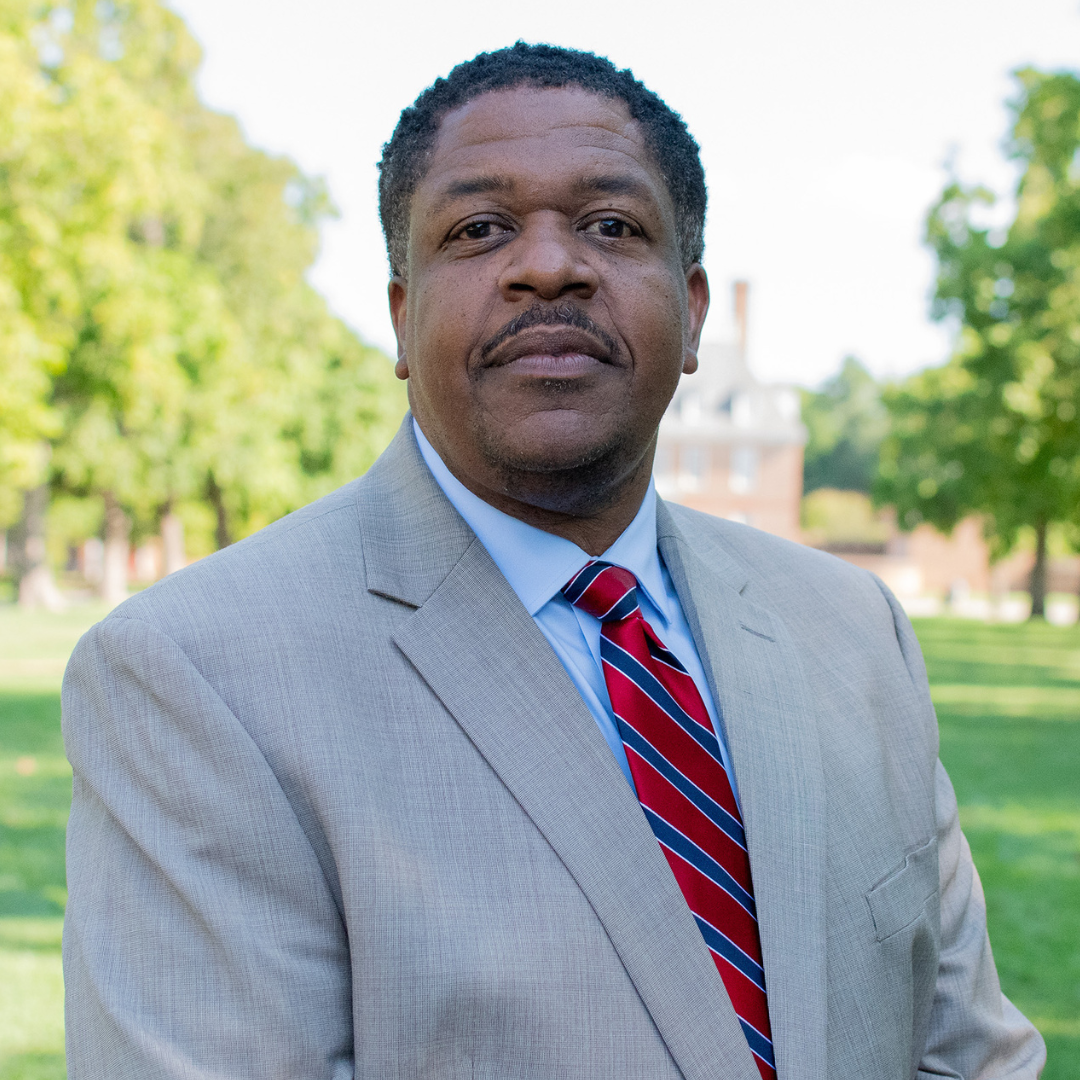
There are moments in life when we sign up for growth, not fully knowing what it will require of us. When I applied to be a BJC Fellow, I knew I was stepping into a space where I would be challenged intellectually, emotionally, and spiritually. I knew I would be among diverse voices wrestling with questions of religious liberty, justice, and identity. What I didn’t anticipate was the mirror this experience would hold up to my own assumptions and boundaries—the ones I had quietly erected between myself and others. …
Rev. Aaron Tinch / Bowie, Maryland
Growth, as it turns out, is rarely comfortable.
During our time in Colonial Williamsburg, amidst deep conversations about the Constitution, conscience, and coalition, I found myself in a quiet wrestle—an internal dialogue about who I am willing to show up for, and why. The tension wasn’t in the classroom debates or the historical reflections; it was in the realization that I sometimes require certainty and reciprocity before offering solidarity. Somewhere in my lived experience, I adopted a posture of caution: Will they show up for me the way I show up for them? Will they speak up for Black lives, for justice, for equity—before I extend my voice for their pain?
That mindset was cracked open by a moment I didn’t see coming.
Hurunnessa Fariad, one of our guest speakers, spoke with clarity and conviction about her work, her faith, and her unwavering commitment to building bridges in the face of misunderstanding, hate, and indifference. As a Muslim woman, her story reminded me of the painful aftermath of 9/11. In those days, America—still reeling from tragedy—misplaced its grief and weaponized its ignorance. Sikh communities, Muslim families, and those simply perceived to be of Middle Eastern descent became scapegoats for a nation hungry for blame.
And in that moment of national crisis, I was relieved—relieved that, for once, Black men weren’t the face of fear in white America. But what I didn’t do, and what Hurunnessa’s words illuminated with sharp honesty, was show up. I didn’t lend my voice to speak against the rising tide of Islamophobia. I didn’t advocate. I didn’t protest. I didn’t pray publicly.
That realization pierced me.
Her courage and consistency in the face of silence—silence from people like me—revealed a truth I needed to confront: justice cannot be contingent on comfort. Solidarity is not transactional. It cannot wait until our names are on the headline or our pain is at the center. If I only show up for causes that promise me the favor of return, I’m not practicing justice—I’m managing alliances.
Being in this BJC Fellows space required more than my intellect or theological training. It required my honesty. It required me to reckon with the ways I had subconsciously rationed my empathy, calculating whether others had “earned” my support. And it called me to repent—not in shame, but in conviction.
I now understand that part of my growth—as a Black man, as a Christian, as a leader—is choosing to show up anyway. Even when I’m unsure. Even when I feel unseen. Even when others may never return the favor. I must be willing to speak up for the dignity of others, not as a favor, but as a reflection of my own integrity.
Growth, real growth, asks us to do the inconvenient thing. It invites us to stand in places that stretch us, to sit with questions that discomfort us, and to listen to voices that convict us. The BJC Fellows Program didn’t just expand my knowledge of religious liberty—it expanded my understanding of what it means to be in beloved community.
So yes, I’ve learned about myself. I’ve learned that growth sometimes begins with a question—why did I put myself here? —but ends with a declaration: because I needed to be. I needed to be reminded that advocacy is not a one-way street. That justice requires all of us. That showing up—consistently, compassionately, and without conditions—is one of the most radical acts of love we can offer in this world.
And so, I leave this experience not just informed, but transformed—committed to showing up, even when it’s hard, even when it’s lonely, even when it costs me.
Because liberation isn’t liberation until it includes us all.
When people hear the phrase “religious freedom”, they often imagine it as something of a shield that protects only their own expression of faith. What I really wish everyone knew is that religious freedom is not just about defending what I believe, but it’s also about protecting the rights of others to believe differently, or not to believe at all. True religious freedom is both broader and deeper than many understand or believe. It is not a tool for dominance, but rather a framework for dignity and coexistence. …
Kyle Zuber / Pataskala, Ohio
During my time in Colonial Williamsburg, I was often struck by how central this struggle was to America’s early story. Walking the same streets where debates about liberty first took root, I realized how fragile and contested the concept of religious freedom has always been. In one session, we examined the Virginia Statute for Religious Freedom, written by Thomas Jefferson in 1777 and passed in 1786. Jefferson called freedom of conscience a “natural right.” But what stood out most to me was not the lofty language; rather it was the recognition that coercion in matters of faith harms both religion and democracy.
That moment, along with so many more, reshaped how I think about today’s challenges.
Too often, religious freedom is misused as a weapon to exclude, rather than a principle that protects everyone. I wish more people understood that religious freedom is strongest when it applies equally, not selectively. In Colonial Williamsburg, I saw the contrast between communities who longed for the right to worship and express themselves freely and those who sought to enforce conformity. The lesson was clear: when one group’s faith or system of belief is privileged by law, others inevitably suffer.
Another powerful experience came from conversations with my fellow participants. In more than one discussion, we were reminded that many Americans mistakenly believe that religious freedom has always been secure. Yet, the colonial experience reminds us that dissenters (Baptists, Quakers, Catholics, and others) often faced harassment, fines, and even jail time. Their perseverance helped carve out protections that later became part of the First Amendment. That history also matters because it reminds us that rights are not permanent; they require vigilance.
Personally, I left Williamsburg with a renewed conviction that my responsibility is not just to guard my own freedom of conscience but to stand up for the freedom of others, even when I disagree with them. I wish everyone could see that protecting another’s right to worship differently (or not at all) does not threaten one’s own faith. It strengthens the foundation we all share.
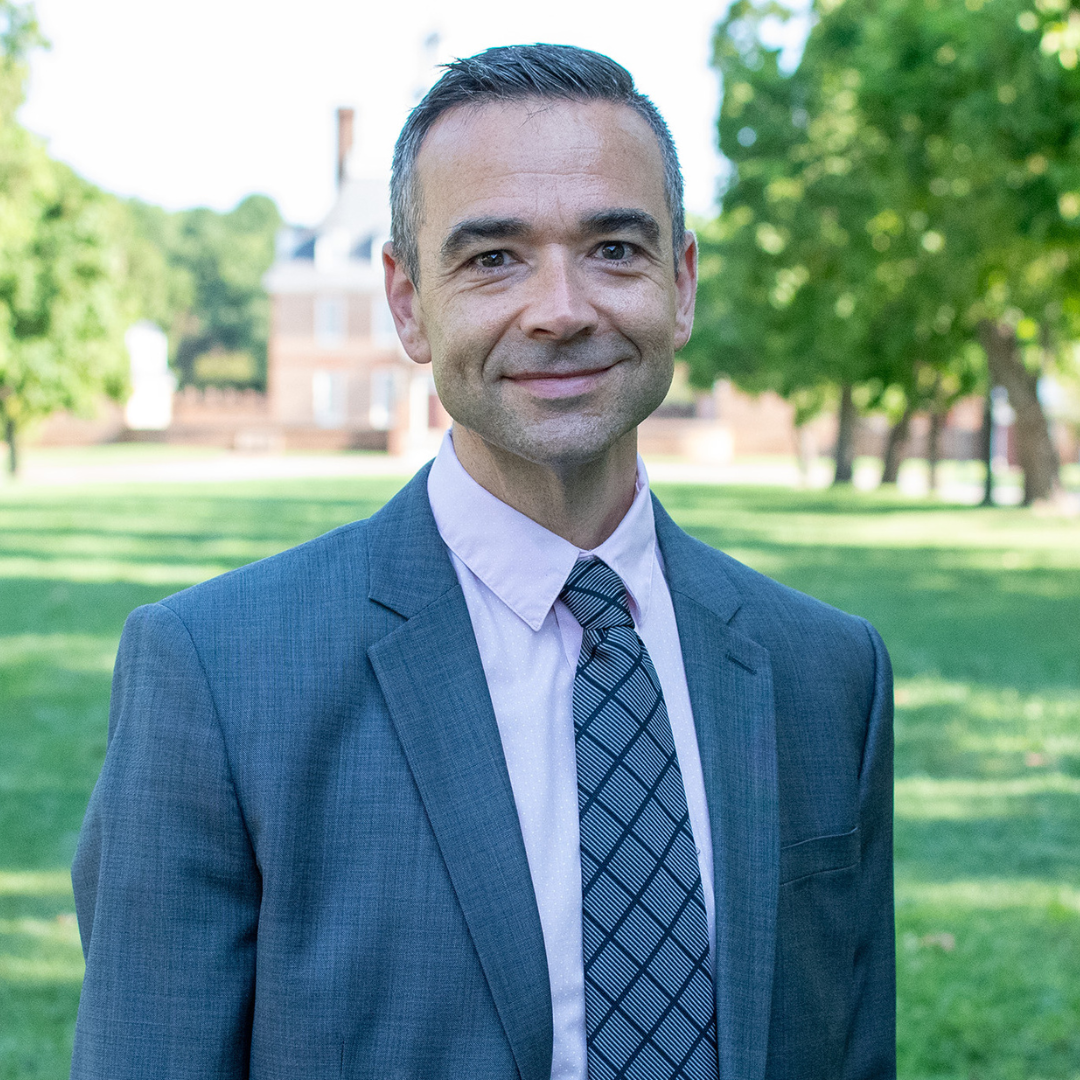
Interested in being a BJC Fellow?
There is no religious requirement for the program, and applications open each winter.

